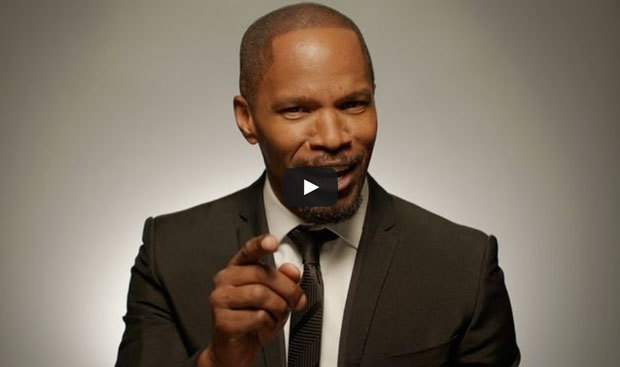Celebrities join UC online crowdfunding campaign for financial aid

BY LARRY GORDON
SAN FRANCISCO — In an unusual effort to bolster financial aid for undergraduates, UC on Wednesday publicly launched an online crowdfunding campaign that has movie stars, politicians, students and faculty pledging to host parties, lead hikes, sing rap songs and work in soup kitchens to win donations.
The Promise for Education campaign, which will last six weeks, is designed in part to attract donations from young alumni and others who might not respond to more traditional fundraising appeals but may be intrigued by a social media one and donate to a particular person’s activity.
Among the well-known participants so far are Jamie Foxx, the Academy Award-winning actor, who promised to “rap a song like Bill Clinton, President Obama and Monique from the movie Precious” if his supporters raise $20,000, and Mike Love of the Beach Boys, who pledged to bring a fan on stage at a concert to sing “Barbara Ann” if a $10,000 target is met.
Gov. Jerry Brown, with a $10,000 goal, said he will host a brown-bag lunch with a student from each University of California campus. For smaller amounts, student activists promised to clean beaches, serve at food kitchens for the homeless and, in the case of student regent Cinthia Flores, dress like Superwoman for a day.
Officials said about $900,000 has been given or pledged already, mainly in more traditional ways: large donations from businesses and UC regents, along with $400,000 from the estate of a New York state history teacher, Abraham Trop, whose three children attended UC.
But organizers say they particularly want gifts from people who may never have donated before and might become lifelong UC supporters.
“The beauty of this idea is the democratization of fundraising. We’re trying to get everybody involved,” said UC Regent Sherry Lansing, a former movie industry executive who helped organize the effort and recruited some of her entertainment contacts to get involved. Her promise is to work at a movie theater concession stand if her goal of $5,000 is reached.
Whatever money is raised will supplement the nearly $700 million a year in financial aid UC undergraduates receive from the university and private sources, not including federal and other state aid. Donors can direct money to a particular campus for need-based aid or to a UC-wide fund, according to a presentation during the UC regents meeting in San Francisco.
Among the big donations have been $100,000 each from Bank of America, the Entertainment Industry Foundation, and UC Regents Richard Blum, an investment banker, and Norman Pattiz, a broadcast and Internet executive.
In another matter, the governor criticized the UC policy of paying hefty annual incentive bonuses to some executives in its healthcare and financial investment programs if they achieve certain goals, such as reducing patient infections or substantially growing the endowment.
“I’m troubled by it,” said Brown, who added that he doubted that UC employees would abandon those goals without such bonuses. He suggested that salaries alone should be incentive enough.
However, Brown, who is a regent, did not vote against the two bonuses the regents approved Wednesday: $115,988, on top of his $580,000 base salary, for John Stobo, senior vice president of health sciences and services; and $331,344 to Melvin Stanton, who’s now co-chief investment officer, on top of his $306,800 base.
UC administrators said they have sharply reduced the number of such bonuses over the last few years and said Wednesday that they would look into Brown’s call to eliminate them altogether.
The meeting was a rare one without a system president, although provost Aimee Dorr represented the administration. Outgoing President Mark G. Yudof was out of town and his successor, Janet Napolitano, the former U.S. Secretary of Homeland Security, is to take over Sept. 30.
A group of UC students urged the regents to divest university funds from large oil, gas and coal companies, contending that holding such stocks and bonds contributes to the pollution that worsens global warming. The students are part of a national campaign at an estimated 300 colleges.
“Climate change is our generation’s greatest, most pressing issue,” said Ophir Bruck, a UC Berkeley student activist with the Fossil Free UC group. However, the UC regents have not moved toward such divestment.
[Source]: LA Times


